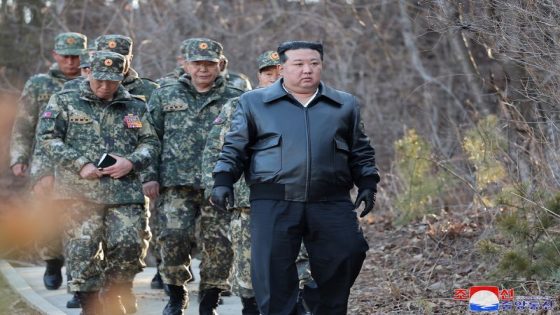MANILA, Philippines — The Japanese government is taking steps to allow the export of a stealth fighter jet currently under development with the United Kingdom and Italy.
The move comes amid a shift in Japan’s security strategy and as the country loosens stringent post-war export regulations targeting weaponry. Under revised rules, Japan had approved the transfer of radars to the Philippines and the delivery of Patriot missiles to the U.S. last year.
In December, Japan, the U.K. and Italy launched a joint partnership to develop the Mitsubishi F-X fighter jet under the Global Combat Air Program, which aims to make new stealth fighter jets by 2035 to replace the Japan Air Self-Defense Force’s aging F-2s as well as Britain’s and Italy’s Eurofighter Typhoons.
Easing export rules on the F-X fighter jet marks the latest revision in Japan’s materiel transfer rules since it revamped its security policy in December 2022. The move faced dissent from opposition parties and Komeito, the junior coalition partner of the ruling Liberal Democratic Party.
Prime Minister Fumio Kishida told the Diet — Japan’s parliament — on Wednesday that restricting exports to countries outside the partnership will hinder the country’s aircraft modernization plan and dampen the success of the international joint development program.
Easing the restrictions on the jets will create a “favorable security environment” for Japan, Kishida said, adding that the program will boost the local defense industry.
Companies involved in the program have also expressed intentions to export the jets to other countries to defray development and production costs.
After months of negotiations, Komeito softened its stance and on Friday agreed to the change with stringent conditions, specifically that the revision will only cover the F-X fighter jet, the parties said in a joint news conference.
Furthermore, all fighter jet exports will require Cabinet approval, and access will only be open to countries with existing defense deals with Japan. The parties also clarified barring sales to countries under existing armed conflict.
Japan’s Cabinet is expected to approve the revisions later this month, in time for partners to release the initial designs of the F-X jet.
Meanwhile, major opposition groups remain critical of the alteration, indicating that relaxing export rules on the fighter jet counters Japan’s pacifist position and raises alarm about the country transitioning into an arms merchant.
Leilani Chavez is an Asia correspondent for Defense News. Her reporting expertise is in East Asian politics, development projects, environmental issues and security.
Source Agencies




